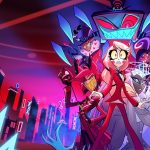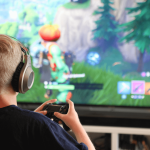Sometimes it’s wise to take a wider view of the contemporary world, zooming out and considering current trends in a broader historical context.
With all the noise about artificial intelligence that ranges from anticipatory excitement to outright panic, it’s important to keep in mind that myth and reality have always shared space in the human imagination, dating back to the very foundations of Western civilization.
For Toine Rodenburg, a successful venturer on emerging technological seas, humanity’s everlasting quest for knowledge and progress despite a foreboding fear is a well-worn path that has consistently delivered on promises of convenience and prosperity.
Beyond Anxiety: The Role of the Entrepreneur in the AI Debates
Rodenburg is an international e-commerce investor with roots in the dotcom boom. His foray into the unknown stems from humanity’s everlasting quest for knowledge. These journeys to the edge of what is technologically possible are not always for the faint of heart.
Technology as a term itself traces its meaning from the ancient Greek work tekhnologia, which translated means a systematic treatment of art and crafts and technique. While the ancients did not have the computational skills to design artificial intelligence as we think of it today, it’s clear they conceived of mechanical means that mimicked human life.
The robot depicted in the ancient Greek story of Talos represents the kind of cyborg mesh of the human and machine that lies at the heart of anxiety over AI. In parallel, the myth of Pandora, a defiant and treacherous being, was a depiction of ancient fears of artificial intelligence coming into the world with a desire to destroy it.
AI: Not a Virtual Pandora’s Box?
Thus far, for entrepreneurs like Toine Rodenburg, such “pandora’s box” fears are misplaced and represent only missed opportunities. Indeed, Rodenburg views this technology as an economic engine with the potential to empower consumers with the utmost convenience and variety at the lowest possible price points.
Rodenburg’s e-commerce adventures culminated with the creation of MyMalls, a pioneering cross-border shopping facilitator that has revolutionized online delivery in the Caribbean, Latin America and other markets. MyMalls is an example of the convergence of traditional commerce with digital innovation, offering consumers unparalleled convenience and choice.
Beyond e-commerce, Rodenburg’s insights into AI illuminate the transformative potential of this emerging technology. As he navigates the complex intersections of philosophy, technology and business, he envisions a future where technology unlocks new realms of creativity and productivity. His eclectic background in philosophy and theology underscores a holistic approach to understanding technology’s role in shaping human society.
Rodenburg: The Upside of AI Far Outweighs the Risks
While it’s true that the ancient Greeks – including giants such as Socrates, Plato and Aristotle – had mixed feelings about the role of technology in human affairs, generally speaking, they valued human ingenuity and craftsmanship, and technology is certainly an extension of that, according to Rodenburg.
Technology can be used for good and bad as an extension of human creativity, something that is well within AI’s capabilities, even if actual human intelligence remains superior in most ways.
For Toine Rodenburg, the role of the entrepreneur is to deliver on the promises of emerging technologies to benefit humanity and create greater convenience and higher standards of living.









